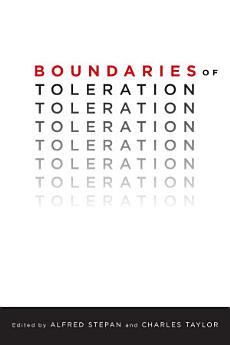Boundaries of Toleration
Alfred Stepan · Charles Taylor
feb 2014 · Religion, Culture, and Public Life Libro 16 · Columbia University Press
Libro electrónico
320
Páginas
family_home
Apto
info
reportLas calificaciones y opiniones no están verificadas. Más información
Acerca de este libro electrónico
How can people of diverse religious, ethnic, and linguistic allegiances and identities live together without committing violence, inflicting suffering, or oppressing each other? In this volume, contributors explore the limits of toleration and suggest we think beyond them to mutual respect. Salman Rushdie reflects on the once tolerant Sufi-Hindu culture of Kashmir. Ira Katznelson follows with an intellectual history of toleration as a layered institution in the West. Charles Taylor advances a new approach to secularism in our multicultural world, and Akeel Bilgrami responds by offering context and caution to that approach. Nadia Urbinati explores why Cicero's humanist ideal of Concord was not used in response to religious discord. The volume concludes with a refutation of the claim that toleration was invented in the West. Rajeev Bhargava writes on Asoka's India, and Karen Barkey explores toleration within the Ottoman and Habsburg Empires. Sudipta Kaviraj examines accommodations and conflicts in India, and Alfred Stepan highlights contributions to toleration and multiple democratic secularisms in such Muslim-majority countries as Indonesia and Senegal.
Acerca del autor
Alfred Stepan is the Wallace Sayre Professor of Government at Columbia University. He is the coauthor of Problems of Democratic Transition and Consolidation and Crafting State Nations and the coeditor of Democracy and Islam in Indonesia.
Charles Taylor is professor emeritus of philosophy at McGill University and the author of Sources of the Self: The Making of the Modern Identity; Modern Social Imaginaries; and A Secular Age.
Califica este libro electrónico
Cuéntanos lo que piensas.
Información de lectura
Smartphones y tablets
Instala la app de Google Play Libros para Android y iPad/iPhone. Como se sincroniza de manera automática con tu cuenta, te permite leer en línea o sin conexión en cualquier lugar.
Laptops y computadoras
Para escuchar audiolibros adquiridos en Google Play, usa el navegador web de tu computadora.
Lectores electrónicos y otros dispositivos
Para leer en dispositivos de tinta electrónica, como los lectores de libros electrónicos Kobo, deberás descargar un archivo y transferirlo a tu dispositivo. Sigue las instrucciones detalladas que aparecen en el Centro de ayuda para transferir los archivos a lectores de libros electrónicos compatibles.











